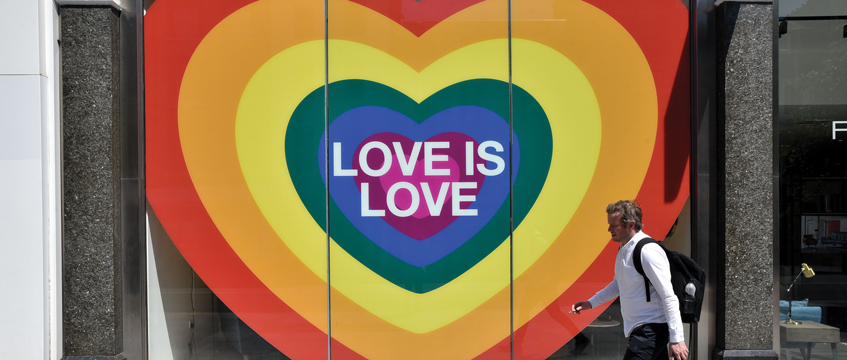COMMENT: The property sector has made strides to create an inclusive culture in order to attract the best talent, no matter their orientation. But in general it still lags considerably behind other industries in tackling these issues.
A recent McKinsey study found that diverse employee groups, including LGBTQ+, women, people of colour and working parents, are having the hardest time balancing work and home life while working remotely. LGBTQ+ professionals are more likely to report work-related challenges, including stress over performance reviews and workload increases, as well as heightened loss of connectivity and belonging, than their straight and cisgender peers.
With the pandemic shifting many companies to remote working for the foreseeable future, it’s important to ensure that diversity and inclusion efforts aren’t put on the back burner – not only for the health of employees, but the health of the company. With vaccines rolling out worldwide, one day soon we will emerge from this pandemic, and organisations that have taken care of their employees, especially those who are LGBTQ+, will be in a better position to navigate a post-pandemic world.
More than a nice-to-have
With many corporations fighting for survival during the pandemic, it’s no surprise that diversity and inclusion efforts have slipped low on the agenda – and even off of budgets in some cases. McKinsey found that 27% of global D&I leaders reported their organisations have put all or most diversity initiatives on hold because of the pandemic.
But maintaining these efforts shows employees that diversity is central to business success rather than a “nice-to-have”. For example, continuing to sponsor LGBTQ+ charities, especially in times of financial struggle, signals to employees that your company is not only an ally to LGBTQ+ employees, but also to the wider community.
The same study reported that while many straight and cisgender people feel isolated during the ongoing Covid-19 crisis, the negative impacts are felt more severely by LGBTQ+ people who may find themselves feeling cut off without interactions with LGBTQ+ colleagues, or other support systems, such as networking groups like Freehold. Take the time to schedule weekly check-ins with your staff to see how they are faring in their personal and work life, and consider organising monthly socials, such as a distanced book club or film screening.
In the flurry to pick up the work of furloughed colleagues or help keep the company afloat, personal and professional development has been put on hold for many.
Having an optimally trained and motivated workforce is not only important for employees’ own career progression, but is also a valuable asset for any organisation, so ensure that employees have the opportunity to reskill while working from home.
Fresh thinking
Nurturing a diverse and inclusive work environment is imperative for navigating through a pandemic and beyond it. Employees with different life experiences and backgrounds view the same problem in different ways and think of different solutions, increasing the odds that one of those solutions will be the right fit. Companies with diverse teams generate greater revenues from innovation, which will be crucial for businesses to emerge successful from the crisis.
As the economy restarts, inclusive companies that have taken care of their employees will likely also see less employee turnover, allowing them to focus on growth with the support of their best employees instead of scrambling to replace them. These companies will also be better positioned to attract top talent, reducing hiring costs, shortening hiring cycles and potentially increasing the average quality of their new employees.
Diversity and inclusion efforts may well have slowed due to the pandemic, but with remote working here for the short term at least, companies in the property sector would do well to use this time to check in with their LGBTQ+ employees, as maintaining a diverse team will be crucial to their future success.
Kelly Canterford is director at Freehold











